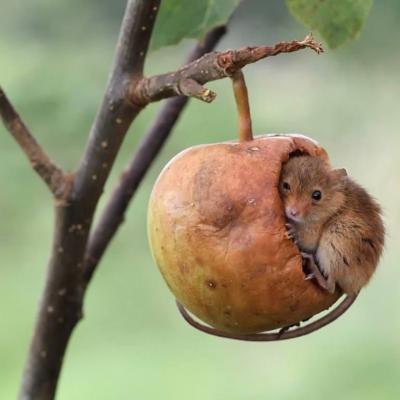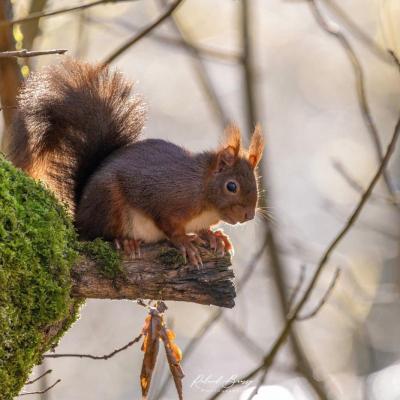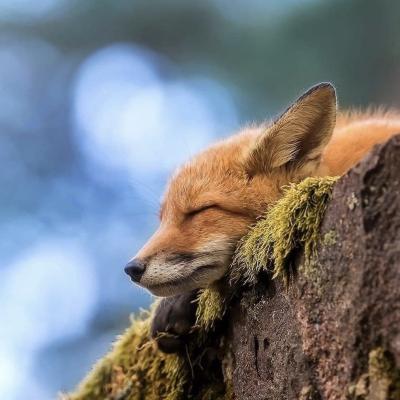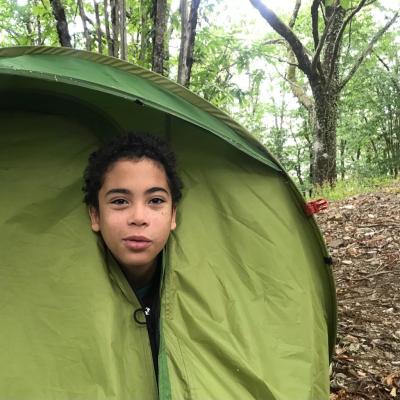Grieving for and healing of lost childhoods
To be honest, I don't recall much from my childhood until the age of 14. I recently discovered the reason behind this, but let's set that aside for now. My parents divorced when I was 12, marking a significant turning point in my life. It made me grow up faster than I'd wished for. Until recently, I believed I had accepted this and moved forward. However, it turned out to be quite different.
The realization struck during a guided meditation from Plantally this November. I found myself in the car with both my parents and my little brother. We were on our way to our holiday destination and a typical French song was playing. Suddenly, tears streamed down my cheeks. I felt the deep loss of my childhood. The moments with my mom and dad will never come back anymore. The thought about this made me very emotional. Oh, how I wish there was more time to be spent together, as a family. Where I could jump onto my fathers neck and act crazy or have one of our special mom-daughter moments.
This experience made me realize something really important. Growing up is part of life, but are we able to leave the childhood period behind us? What does this actually mean, and, most importantly, why is it important? That's what this blog is about.
Written by: Melissa Magdalena
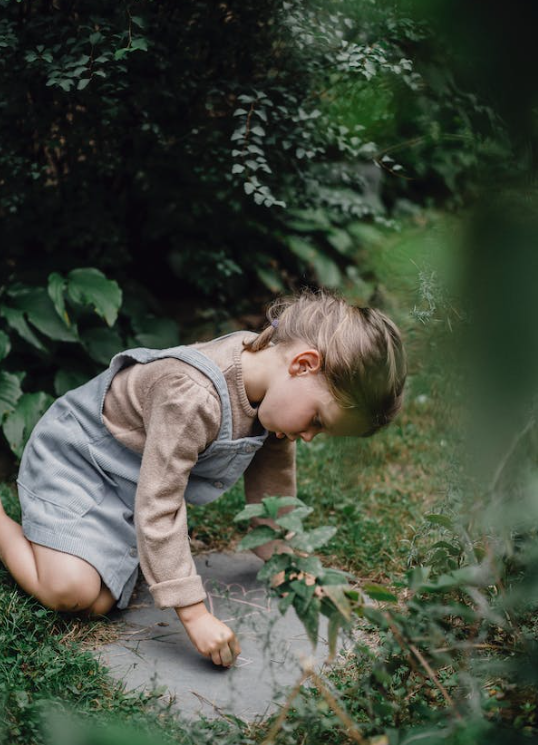
Grieving for a lost childhood
It was time to grief about what has been, and, let go of expectations that will never happen anymore. It was time to accept that my childhood was over and that it will never come back.
We're not able to change anything, in fact, it is time to move on and embrace that you're an adult now. This means you have to leave behind parts of yourself which are still wishing for another childhood. Why? To live freely, without resentment and false hope. So that you're able to live a life from full acceptance of the present moment.
It's not surprising that we are all, in some way, grieving for our lost childhoods. Given the fact that our current society doesn't prioritize cherishing childhood or parenthood as it once did. It's not without a reason that they state "It takes a village to raise a child" (African proverb).
Becoming a parent - not too long please!
Regarding parenthood, let's look at the Netherlands as an example. Mothers are only allowed 16 weeks of pregnancy and birthleave, and fathers even less. This early separatation stems from the necessity to return to work. While there's an option to work fewer hours, many families can't afford this dus to current prices and taxes. Thus, the focus inevitably shifts to earning money.
Regardless of having enough or too little, the emphasis on money persists. Parents strive to secure a good future for their children, often working extensive hours, missing crucial moments in their early lives.
Meanwhile, children find themselves in daycare, under the care of strangers responsible for numerous other children. As a parent, you navitate a situation shaped by others, feeling concerned no matter the decision you make. Too much focus on money leads to inadequate time for your child, while having too little puts you in survival modus.
Parenthood - Losing your own identity
Throughout this period, there's scant place for your own identity. Becoming a parent reshapes your life and relationships drastically. It entails not just transitioning into a new phase but also embracingb life beyond yourself. Suddenly, you're responsible for another human being, adding a whole new dimension to care, often accompanied by a sense of inadequacy.
Moreover, life presents moments of profound sadness, like the loss of parents or other loved ones. Are you given the space to mourn these losses, or does society pressure you to swiftly move on, neglecting your own grief and pain? We all carry pockets of trauma, often unaddressed, which can pass on to your children unattented.
Childhood - No time for that
Conversely, our current society restricts the freedom of childhood -- the ability to play without worry. Instead, children are compelled to attend school, placing them under the supervision of strangers whom you entrust with your most precious treasure. Often, there's little choice in the matter. Many children, including myself, have stories of being bullied or struggling with social pressures at school, leaving them feeling despondent, depressed, and inadequate. It's an early exposure to a world shaped by social norms.
Should a parent decide to homeschool their child, they often face opposition and criticism. 'This isn't normal,' they'll say. Parents find themselves caught between conflicting opinions, disregarding the fact that staying at home might not be financially possible for many families.

Responsibility over playfulness
As children, we're pushed to grow up swiftly. I recall my first job at 14, delivering newspapers in the neighborhood -- earning my own money felt empowering, However, it is crucial to recognize the underlying message here. While gaining responsibility and independence, we're also early learners in the importance of money. Consequently, as we mature, we often become serious and conventional adults, losing the ability to play or be spontaneous. Sometimes, after drinking alcohol, we might get loose and act a bit wild.
The playfulness I refer to is that inner child within us, ever-present. It's the part that longs to play in mud, climb trees, or crawl on the floor. Do we make space for this part of ourselves, or do we dismiss it as 'irresponsible'?
Break the cycle of lost childhoods
There are numerous situations that impact childhoods. In our current society, there's so much emphasis on earning money that we lose sight of what truly matters. There's barely any time to be a parent of child fully. This lack means there will always be a feeling of 'loss'. Does this imply we all must cease working and be there 24/7? No, I don't believe that's the solution. The solution lies within ourselves.
We're stuck in a constant loop, carrying unhealed and lost childhoods. What if we start acknowledging this? What if we accept the past and make peace with the present moment? By embracing our childhood as adults, we can shape a different reality in the future. This starts with forgiving our parents.
Our parents did what they could in their time. They worked with the resources and knowledge available to them. Forgiveness begins with understanding they did their best out of love. Let go of childhood and the expectations tied to a 'good childhood'.
The moment we heal ourselves is wehn we stop passing on these wounds to our children. But even as a perfect parent, there might be something missed, something that could have traumatized your child. True adulthood arrives when you find acceptance in this reality. Set yourself, and your children free. Heal these inner parts and start living.
With love,
Melissa & Marjo
Let us support you
Melissa and Marjolein are experienced coaches and organizers of nature retreats in South France. Ever thought about who you really are when the noise of the outside worlds fades away? Join us for a unique experience where you can explore this question and deepen your connection with yourself. Reach out to us for more details or have a look at our upcoming events, and begin your transformative journey today.

